TALKING BEAT POETRY
TALKING BEAT POETRY AND JAZZ JOINTS
by Norman Warwick
I was privileged throughout the six years from 1963 to 1969 to attend The Heys Boys Secondary (not very) Modern School in Prestwich. I was taught poetry by a wonderful teacher called Mr. Drury´. In those days, when ´whacking´ was not only allowed by the government but seemingly actively encouraged, Sir would bang a big, leather-bound bible in a double handed volley across the grey-flannelled backside of any miscreant pupil. He would then tell them they had been ´smote by the wrath of God´ as he pointed them back to their desks.
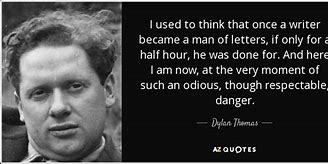
Hard and tough as we pupils thought him to be, though, Mr Drury would sometimes tear up as he read to us his favourite poets and extolled their virtues. We would hear him reading confidently, then faltering and falling into a mouthful of silence as he gasped at something wonderful by Wordsworth, beautiful by Browning or divine by Dylan Thomas. He developed my love of poetry, read my earliest efforts at my own writing non-judgementally and, though he never knew it, he set me off on to this life-style I follow today of taking following sidedtracks & detours whilst ´still chasing that rhyme.
This same, prematurely bald man with a halo of red hair, strides through my memories still as the physical and intellectual giant that I viewed him to be in my youth. He taught me about The Romantic poets and the Metaphysicists, but in following the educational curriculums of the times I never learned about The Beat Poets.
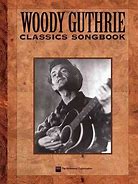
I left school, with O levels in only English Language & English Literature, which says much about my lack of interest and or abilities in any other subject and surely much more about Mr. Drury´s teaching skills. I moved quickly through hosts of golden daffodils and away from ruined cottages to the folk songs of Woody Guthrie (right), Tom Paxton and eventually to Bob Dylan and wouldn´t have had time to give the beat poets a second glance even had I known where to look for them.
I knew by then, I think, that ´beats´ within poetry represent the rhythm, sound, meter and rhyme of the entire piece of poetry. There are many different types of beats the poet can use as well as different types of meters used to write poetry. Rhyme, rhythm, meters and sound are all related to poetic units or poetic beats.´
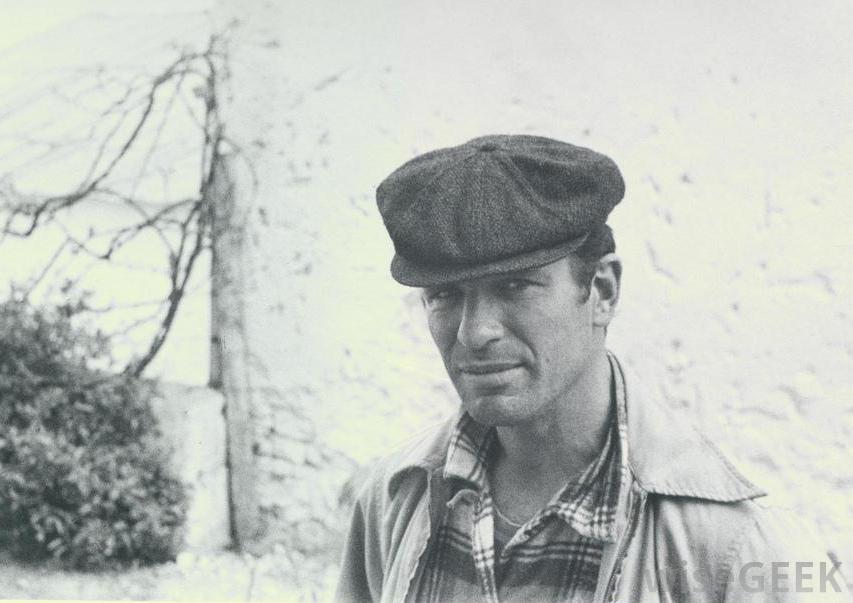
So, I guess that the Beat Poets were represented by that description, what with the words beat and poetry being so often repeated in such a short description. However, when Bewick talks of Kerouac (left) I become aware that there was much more to it than that, so I decided to go in search of any wised geek who could tell me more.
I found just such a person at a web site so- named-
There is a 2021 post, dated as recently as 5th February 2021 by Marlene Garcia at What Is Beat Poetry? (with pictures) (wisegeek.com)
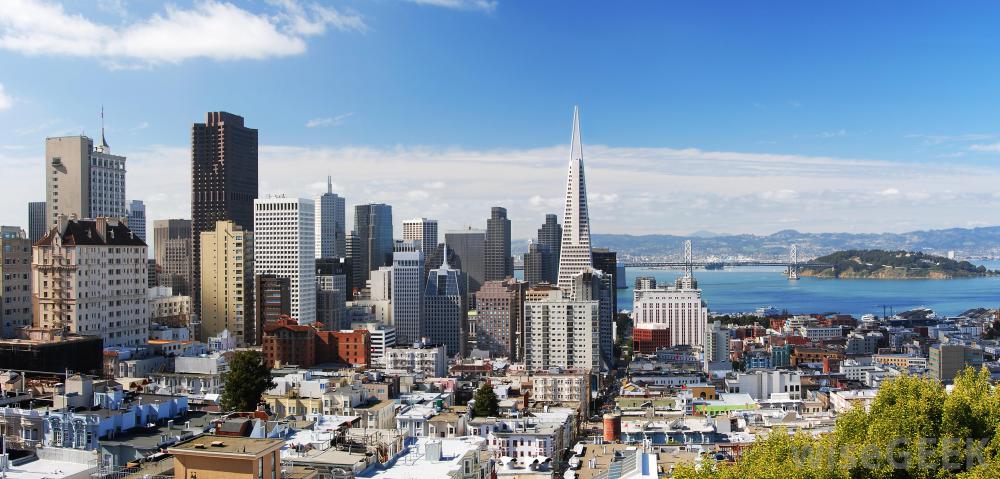
According to Marlene, ´beat poetry represents a style of writing from the mid-1950s and 1960s, popular in Greenwich Village, New York, and San Francisco, California.´
That much I know, but then Marlene offered me further information.
´It incorporates a free-form type of writing that promotes individualism and protests the loss of faith. A small group of bohemian authors and poets created beat poetry and became known leaders of the Beat Generation.
´These writers were raised during the Great Depression in the United States and lived through World War II. They were disillusioned with their views of the post-war culture of conformity and materialism. Beat poetry laments the loss of personal values and faith, and promotes the belief that modern life is spiritually empty.´
That didn´t sound too far away from my folk-led musical listening to Guthrie (depression era) and Paxton but I felt the ground rumble under my feet as she took me into uncharted territory.
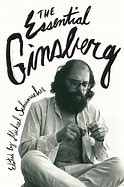
photo 5 ginsberg ´Some of the best-known beat poets,’ she said, ´ínclude Allen Ginsberg, Lawrence Ferlinghetti, Jack Kerouac, and William S. Burroughs.´
These were all names I had heard of and perhaps had even read short excerpts of, but actually knew nothing about. Nevertheless I felt safe walking in Marlene’s footsteps
´Some beat poetry written during this era was inspired by Zen Buddhism and the use of drugs to raise consciousness. The beat generation explored various forms of mysticism, which is evident in some of the poetry. Many in the older generation at the time´, (therefore), shunned themes address in beat poetry, believing the poets were immoral and delinquent. Ginsberg’s poem “Howl” and Burroughs’s book Naked Lunch both became subjects of obscenity trials, which essentially put this style of poetry into the limelight. Judges ruled neither poem to be obscene and beat poetry was often recited orally´.
As a performance poet taking part in performance poetry competitions in pub gigs, I have been aware of how linear is the route between beat poetry and today´s poetry slams. So I was interested to read Marlene´s overview of how a number of writers and fans known becoming known as the Beat Generation developed the scene.
¨Members of the Beat Generation typically would gather at Ferlinghetti’s City Lights Bookstore in San Francisco to read poetry, usually accompanied by jazz´, she wrote, so clarifying for me Steve´s thoughts on the music and poetry he loves
´The bookstore became the main meeting place for young people who felt disillusioned and disappointed by the older generation. Many of the streets around the store were later named for the beat poets.
Some themes of the poetry centre on liberation for black people, homosexuals, women, and Native Americans. It rails against censorship in any form, and promotes sexual freedom. This type of poetry represents an early effort to raise awareness of ecology and how humans harm the planet. It influenced the songs of Bob Dylan.
That was also true of so many other folk singers who I followed as they became popular in the sixties. So I have perhaps been wondering all these years who were The Beat Generation when I might have actually been one of them all along? The more I read of Marlene´s essay the more plausible that seemed, but the chronology didn´t work.
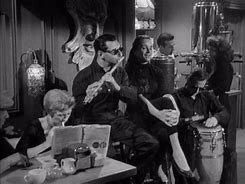
´The Beat Generation´ (as depicted right) is credited with inspiring the anti-war movement of the hippies in the sixties and raising awareness of ecological issues. Some of these poems shun conformity and promote the decriminalization of marijuana, which might have influenced the popularity of drugs among hippies. They also may explain why Historians hold different views about why this style of writing was dubbed beat poetry. Some claim the writers felt beaten down and tired by the consumerism and lack of societal values. Others say beat poetry refers to the musical beat of jazz used in oral recitation. Still others claim Kerouac coined the term Beat Generation to describe his circle of friends. The Beat Generation have helped lead to the women’s rights and gay rights movements.´
So. I know more (even if I understand less) than I did before after reading Marlene´s article.
I decided to research the impact of writers like Allen Ginsberg and Jack Kerouac made on others of my generation. I´ll come to back to you shortly to let you know what I find.

Before I set off on my research, though, there is news just in from those hard working ladies and gentlemen of Ribble Valley Jazz and Blues Festival. They have announced that Dave Walters presents his first radio show on Wednesday 30th June from 9 till 10 pm. The programme is subtitled as Guitar Showcase volume 1 and he invites us to listen inm and see if we agree with his selection of his personal favourite works. The show is broadcast on 106.7 FM or is on the internet at www.ribble.fm.com

Newsflash Northern Jazz Promoters are looking for a dynamic, organised and collaborative arts manager to lead the delivery of a workforce development project built around the skills development of new and experienced jazz promoters in the north of England This is an amazing opportunity to work with a variety of key individuals and organisations across the northern jazz sector to create new training opportunities, help develop the careers of the next generation of promoters and ensure the sustainability of the sector in the longer term.
This is the overall manager post for the scheme and asks for 50 days work on a consultancy basis. Fee £8,750.
Closing date for applications is today Monday 10am 28th June 2021. Sorry this has arrived late with us, but we just trying to squeeze it in for any early risers who are interested to get a chance to apply.
Interviews will be held the week commencing 7th July in Leeds. Applications are by sending a CV and a covering letter responding to the relevant job description and person specification to
Lesley Jackson, Executive Director, Jazz North
by 10.00am 28th June 2021
Details are here https://tinyurl.com/njpvacancy
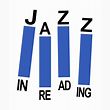
Meanwhile, we have received news from the excellent Jazz In Reading listings team that we´d like to share with you.
Graeme Hewitt´s High Society Jazz Band is ´back home after seventeen months´ and will be performing at Theale Village Hall, Engelfield Road, RG7 5AS on Tuesday10thAugust at 2.00 pm with the ten pounds admission fee including a ticket for the raffle. Because there can be no bar service you are invited to take your own drinks. For further information check out graemehewittjazz@hotmail.com
Bandleader Graeme Hewitt wrote a few months ago that:
This week, after almost twelve years, I eventually returned my set of keys to Theale Village Hall having met with an unprecedented number of road closures on the round trip of more than forty miles, which we used to do every week.
It was a sad day as our weekly Tuesday nights gave us and so many followers so much pleasure. The venue was certainly the best residency the High Society Jazz Band, in its fifty years, ever enjoyed. Those twelve years of playing with some of the best musicians on the jazz scene, produced for me some wonderful memories. Many, in my retirement, I can still watch on DVD as I filmed many of those wonderful evenings. It may be worth putting them on ‘You Tube; when I eventually acquire that skill.
In those twelve years we made some wonderful friends, lovely supporters who came week after week. When I returned the keys I bumped into Eve, who was as local to the club as any one, and she said how much she missed those Tuesdays and I know she is not alone.
The final line-up of Steve Watling, our lovely drummer, Andrew Clancy, an incredible pianist, Roger Davis on bass, Terry Hutchins, our brilliant guitarist, Mark Aston, and what at talented .musician – trombone, baritone sax tenor sax, soprano sax – even clarinet, and our various trumpet players, Andy Dickens, Peter Rudeforth, Lester Brown, Ben Cummings, and going back to the earlier years, Denny Ilett all gave wonderful support to our music. It would extend this email to several pages were I to include the names of all who have joined us but John Lang and Clive Burton were long time players with us as was Perry Lock and Dave Moorwood. Paul Sealey too. It is sad to say our music will never, ever be the same again.
We had some wonderful guests join us, Kenny Ball was always such a joy – and a star – full of fun and some great playing, Chris Barber did three with us and that was incredible as he did not go out and do guest spots with other bands so I did deem those nights as very special. But the list of those who shared our stage would fill a book.
And finally there is one person who gave so much to our evenings,. Everybody loved her, always full of smiles, her contribution in organising the finances every week, such an important part, – calling the numbers of the raffle and the most important person in my life, just an outstanding partner, friend, nurse, she does it all – MARIAN. I love her madly.
I will keep you posted if and when we organise a final special evening of jazz, hopefully around Christmas, and Sue at the hall is standing by.
Indeed, the press release we received this week from Jazz In Reading saw Graeme keeping his promise by inserting his latest update, as follows below.
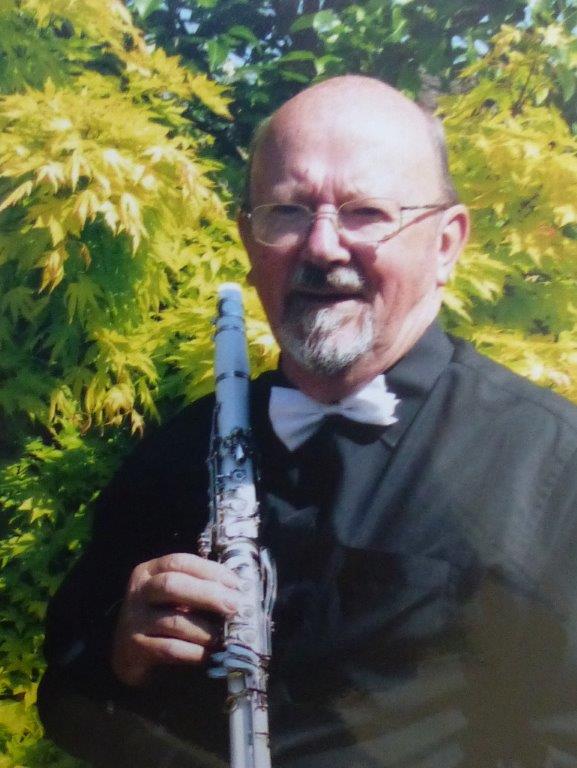
The High Society Band last played in Theale Village hall in March 2020. Prior to that we had been there every Tuesday night for eleven years, and had actually played in and around Theale for more than twenty five years. We had built up a regular session, all run on ten pounds a head and a raffle. Lockdown closed us down. I´m delighted to say, though, that after seventeen months, we are back and will be opening up again on Tuesday 2nd August. However, note the start time of 2.00 pm. I´ll be 82 shortly, and going to bed after midnight is losing its appeal!
Meanwhile, we have just one more reminder from Jazz In Reading of upcoming Jazz In Yhe Vines events. All performances are at the Oaken Grove Vineyard, Benhams Lane, Fawley, Henley on Thames, Oxon. RG9 6JG

On Sunday 4th July at 3-00 pm (doors open at mid-day), there will be a Celebration Of Louis Armstrong’s Music in the company of the Denny Ilett Jr Trio Denny is on guitar, Enrico Tomasso on trumpet and Andy Crowdy will be playing bass. (see left)

Sunday 1st August sees the Alex Clarke Trio, with Alex on sax, joined by Dave Newton at the piano and Dave Green on bass. (see right)

Monday 30th August (the bank holiday) will feature the Art Themen Trio with Art himself playing a variety of saxes with Pete Whittaker on organ and George Double behind the drums. (see left)
Tables for these events are set for 2-6 people, and priced from £30 to £90 per table.
Surrounded by ancient woodlands, Oaken Grove Vineyard is a family-run, boutique vineyard offering a range of award-winning English wines. Established in 1986 in the foothills of the Chilterns, the seven acres of Pinot Noir, Bacchus and Madeleine Angevine vines produce exceptional quality still and sparkling wines that are fresh, modern and packed with flavour.
Vineyard gates open at midday and guests are welcome to enjoy drinks on the wine terrace before the jazz starting at around 3pm.
Tables for 6, 4, 3 and 2 people are available. Wines from our own vineyard as well as some other local beers and guest wines will be available to order, as well as food offering (further details TBC). Every table of 6 will receive a complimentary bottle of wine.
Full Covid prevention measures will be in place, and we ask all our guests to follow guidelines.
Sidetracks And Detours are grateful to Jazz In Reading for keeping us informed and wish all concerned the very best as they return live jazz to its rightful place on our arts and culture calendars. So, you´ve got the date time and venue post code, so why not follow the sidetracks and detours, through the grape vines, back to live jazz?
We also invite you to drop us a review, or even an interview, as an attachment to an e mail to normanwarwick55@gmail.com
Any submission subsequently published will, of course, be fully attributed so if you wish to include a short self-bio and a jpeg of yourself please do so. Similarly if you have appropriate photographs of the event you´d like to include please send them as jpeg files in a zipped folder as a separate attachment.
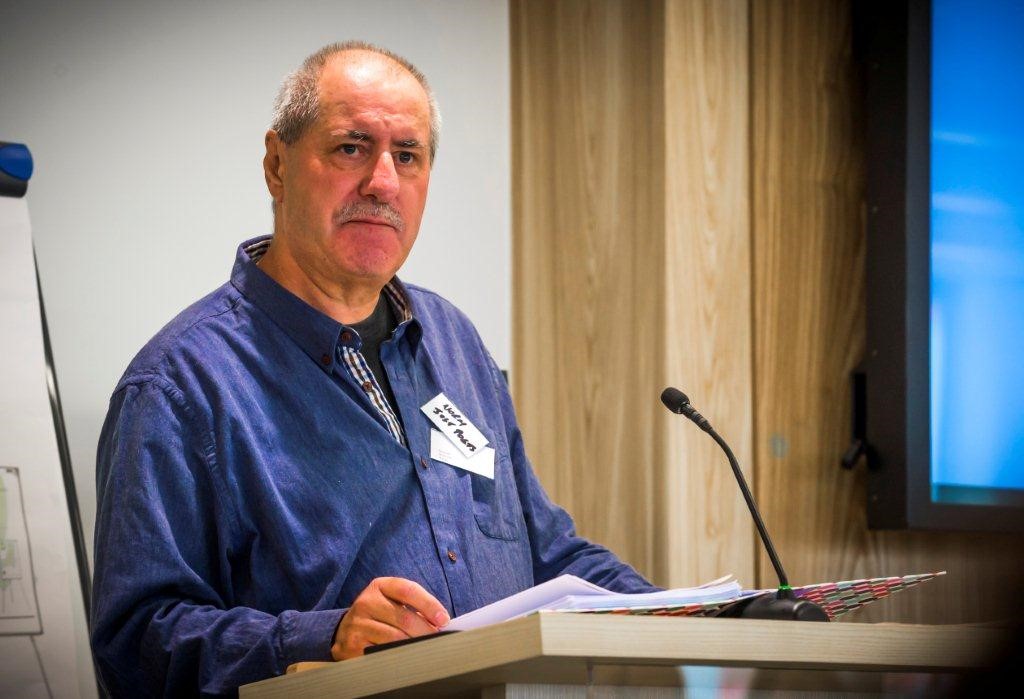
Today´s pages have been written and collated by broadcaster and writer Norman Warwick the owner and editor of Sidetracks And Detours daily blog. Norman, who also writes a weekly arts column for Lanzarote-Information on-line, is one of the four founder members of Joined Up Jazz Journalists, along with Steve Bewick and Gary Heywood-Everett, his friends at the Hot Biscuits jazz radio programme, www.fc-radio.co.uk as well as Susana Fondon a writer supporting the live music scene on Lanzarote, and you can follow her interviews at Susana, Author at Lanzarote Information
You can also find Norman´s Lanzarote coverage at
Norman, Author at Lanzarote Information where you will find almost 400 articles, including many jazz related features, at




Leave a Reply
Want to join the discussion?Feel free to contribute!